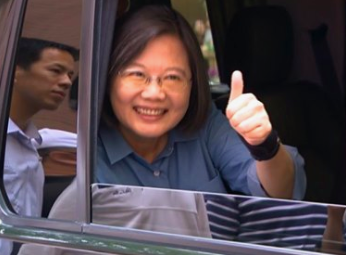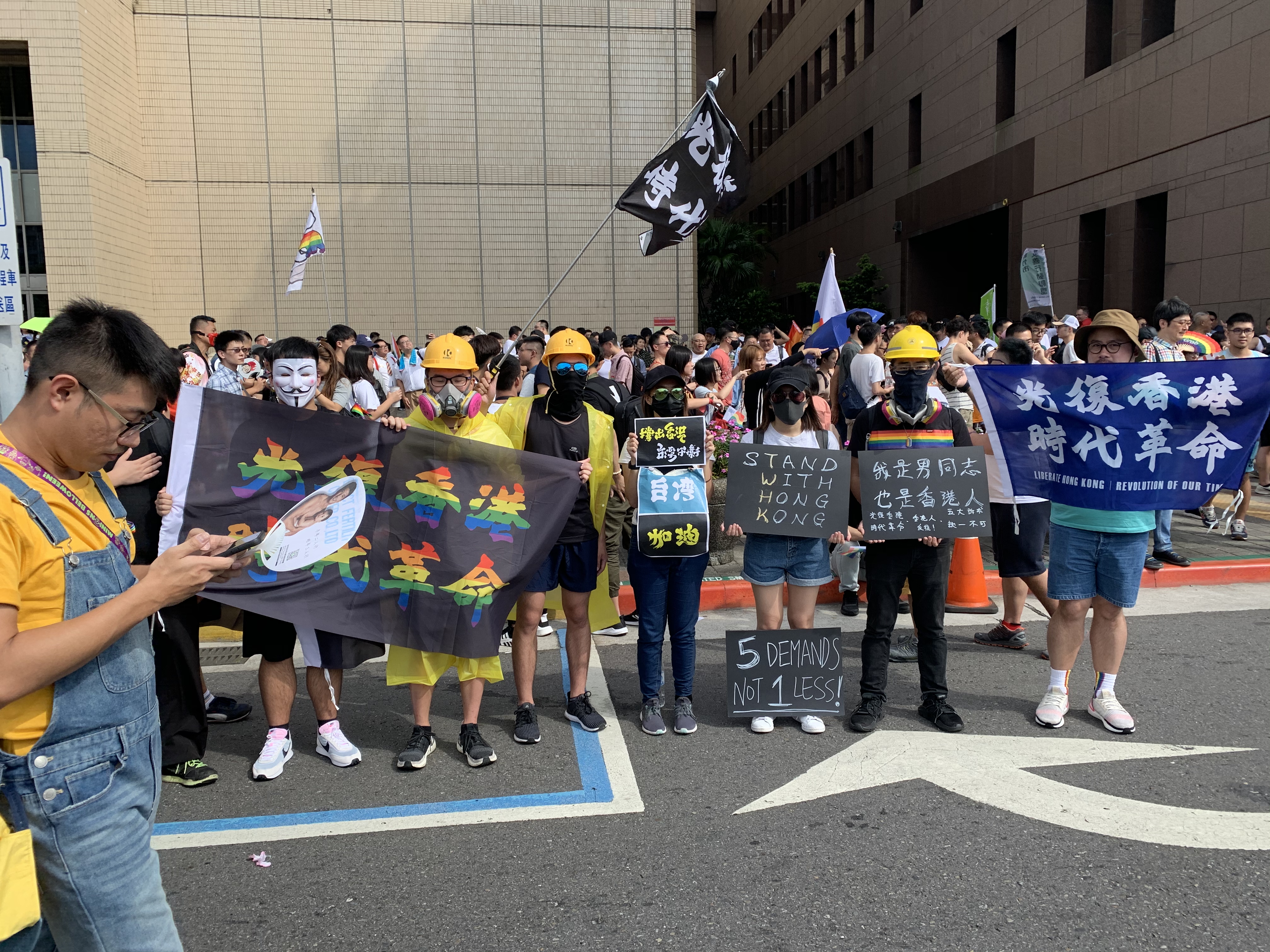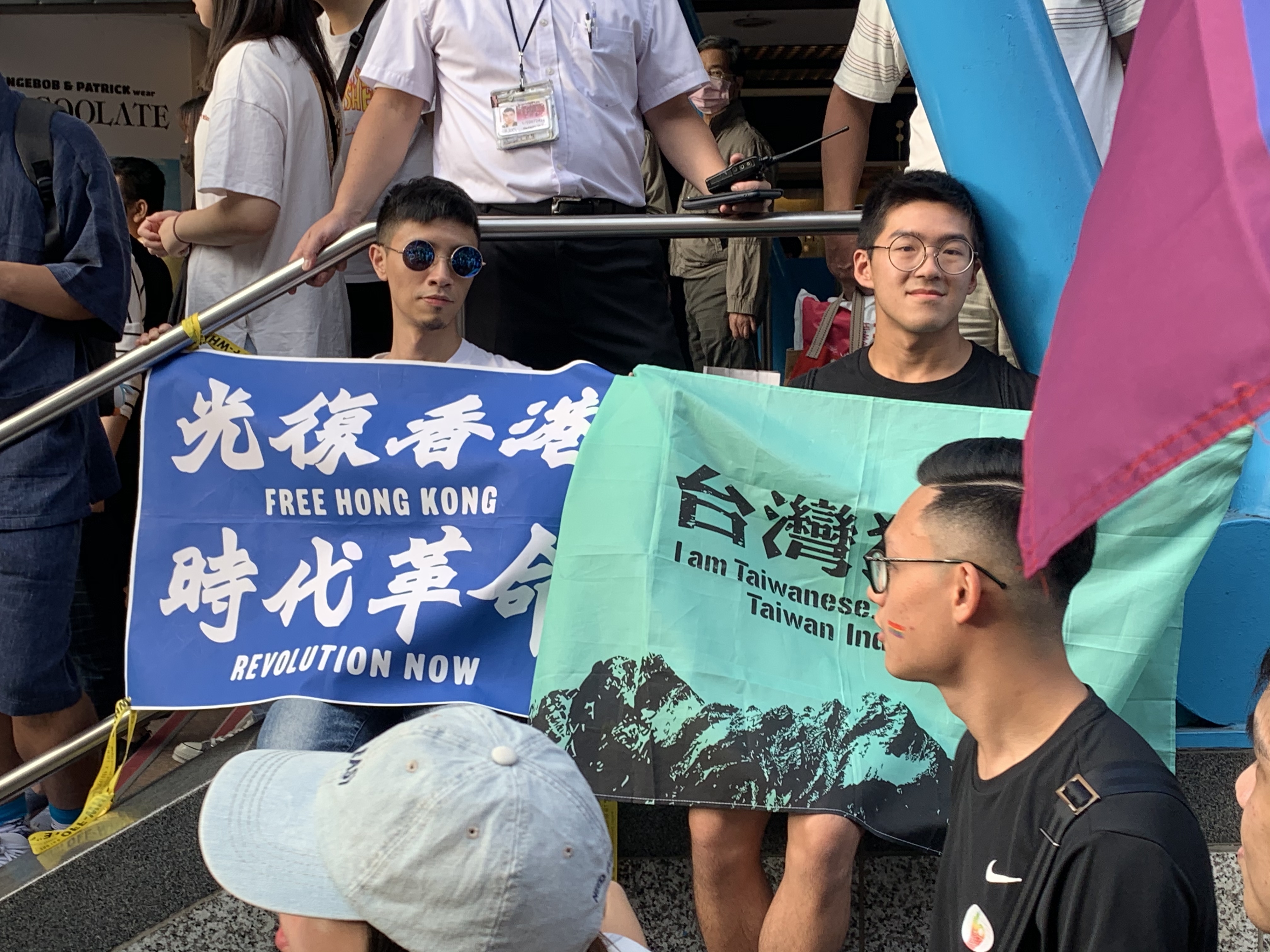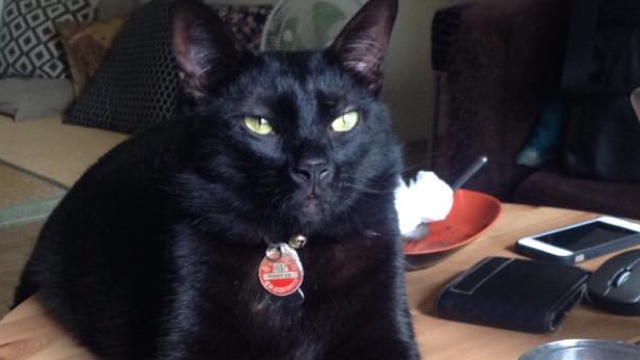 |
| One of the two parties has been putting their ears to the ground. The other needs a hearing aid (perhaps literally). |
Nine months ago, if you'd asked me about Taiwanese electoral politics, I would have told you these things:
1.) The DPP is cracking up at exactly the moment that it needs to come together and show unity. As a result, the DPP are going to continue to be tainted by accusations that they're not good at administering once in power and are, at their core, just populist rabble-rousers (as friend and political analyst Donovan Smith put it) who are prone to infighting.
2.) The KMT is going to unite behind Big Uncle Dirk, not because they all like each other, but because they see him as their only chance to win in 2020. Terry Gou will be pissed, but that's it.
3.) Because of this, both parties are going to have trouble shoring up their youth credentials and future leaders, because both are 'older' parties.
So I guess it's a good thing that nobody asks me about politics, because damn was I wrong.
Now that the major parties have finalized (finally!) their revised party lists for proportional representation seats and their presidential candidates have chosen running mates, it sure looks to me that the DPP, against all odds, has managed to actually unite. On top of that, tapping her primary challenger, Lai Ching-te, as her running mate was a great way to really bring home that 'unity' message. I'm not a fan of Lai (I think he's a corrupt, self-serving opportunist) but I understand why he was chosen.
The KMT, on the other hand, are the ones falling apart and come across as terrible, out-of-touch administrators. With Han saying things like "Tsai is fat and white [that is, corrupt and soft] and I'm dark and think [i.e. one of the everyday working people]", the KMT is sounding more and more like "populist rabble-rousers" compared to the DPP's well-considered governance. On top of that, the KMT party list exposes how much they - rather than the DPP as once seemed to be the case - are plagued by factional infighting. It's so bad that Han's own running mate, Simon "Who?" Chang, suggested that people vote for pan-blue third party candidates.
I don't actually want to talk much about the party lists though - plenty of people have already done that. All you really need to know is that the KMT's list, even revised, is such a massive joke, full of ancient 'Mainlanders' (people born in China or who identify as Chinese because they were born in Taiwan to Chinese parents not long after the 1949 diaspora). Revising it didn't really fix that, despite removing the guy who said independence supporters - so, most Taiwanese - should be beheaded, and Wu Dun-yih putting himself lower down on the list (putting himself on the list at all was craven and opportunistic).
The DPP's list is problematic too, with not that many young candidates who could benefit from the exposure, and an indigenous TV host put at #1 and then revised off the list altogether. But nobody seems to be talking that much about it, because the KMT's absolute insult to the Taiwanese people is sucking up all the attention.
It's also worth noting that other than these blunders, the DPP party list seems designed to send a few clear messages: first, we are unified. Or, less generously, we are making sure all our key 'people' are happy for now. Second, we're tapping (experienced, older) experts. Or, also less generously, we actually aren't trying hard to shore up our youth support (though at least one nominee, Hung Shen-han 洪申翰, is under 40). Finally, we are willing to work with the Left (considering the inclusion of someone like Fan Yun). Or, again, less charitably: we are trying to absorb pan-green third parties so they cease to be a threat.
Regarding that last one, though, I don't think there's a big practical difference between the two interpretations. To absorb those third parties, they pretty much have to accept lefties into their ranks. By recruiting lefties, they undermine those third parties. The difference is...what exactly?
But here's the thing - although the DPP party list doesn't skew particularly young or indigenous, I would argue that the DPP overall has done a solid job of shoring up its overall youth credentials. Hiring Sunflower luminary Lin Fei-fan, when it's well-known that the NPP also wanted him, was a baller move. Importantly, he was the one who chose the DPP over the NPP, for his own reasons - but his choice does send a message. Gaining the support of ex-NPP and now independent legislator Freddy Lim was also a win. In addition to Lin, the DPP has been attracting a fair number of people from the Sunflower generation.
It's worth noting that this has been the DPP's plan since the 2014 Sunflower movement - they've always hoped to recruit these younger activists, though they did not immediately run them for office - and what we're seeing now, despite their party list skewing older, is the beginning of the fruition of that policy.
I wouldn't personally know, but I would be shocked if they aren't trying to grab the recent exodus from the NPP, too. I don't know if they'll be successful, but I can't imagine they won't try. With Fan Yun recruited, I'd be shocked if they weren't trying to bring the only Social Democratic Party politician ever elected (as far as I'm aware?), Miao Poya, into the fold. I'm not confident she'll bite, though.
It's also worth noting that, again, there is little practical difference between recruiting the more liberal members of this generation (including poaching or vacuuming up unhappy defectors from other parties) because the DPP is willing to move to the left a bit, and doing so simply to eradicate their pan-green challengers.
The KMT, on the other hand, seems to have dug in its heels on being the Party of Your Grandparents (and Maybe Your Parents If They're Kind of Awful People.)
I suspect that this is because the DPP's core philosophy was never actually populist rabble-rousing: that sort of political rhetoric may be adopted by any party and is more of a quick-win strategy than a guiding ethos. They've always been the party borne of the Taiwanese democratization movement, which means they're the party more willing to consider a progressive way forward. Although they have their elders and social conservatives and have not always been on the more progressive or liberal side of every issue - and have just as much interest in keeping Taiwan locked into a system dominated by two major parties as the KMT - they've shown the capacity to evolve with the times. Passing immigration reform (unlikely in the Chen era, but one of the first things Tsai did) and same-sex marriage are clear indicators of that.
As a result, they have a core guiding ethos that has the capacity to attract the support of younger generations, even if the party doesn't always live up to its own ideals. Despite setbacks - the delay with passing same-sex marriage being just one - they can shore up their ranks with Millenial and Gen-Z recruits and hang on to youth support. Or at least, the potential is there.
It's not that the KMT doesn't want to attract the youth - I'm sure they'd love to get the votes of some imaginary "sons and daughters of China" (中華兒女). But, despite the occasional socially liberal move (for example, they were once the technocrat party which was actually more open to immigration than the then-Hoklo ethnonationalist DPP), their guiding ethos is one of political conservatism and authoritarianism. That's no surprise given their origin in Taiwan as an occupying force and then a military dictatorship.
What the DPP envisions for the future needs some tweaking, for sure. They really should back off on the useless drug war, and the death penalty has got to go. Same-sex marriage needs to evolve into full marriage equality. But their fundamental principles - a free, sovereign and democratic Taiwan in which everyone enjoys equal rights - is one that can carry to the future.
The KMT - they want what exactly? From their nominee, you'd think it was allowing Chinese annexation. From their party list, some old-fashioned notion that Taiwanese are primarily Chinese or that the ROC could ever "retake the Mainland". Certainly, according to things Han and his wife have said, they're turning more socially conservative and especially hammering the "family values" and anti-immigrant rhetoric. A shame, as they were not always the more socially conservative party on every issue.
How do those beliefs carry to the future? They don't. The youth won't vote for any of that.
As a result, I can count the 'young' KMT future leaders who are publicly high-profile now on perhaps one hand, one of whom was left off the KMT party list. All of them are older than me (I'm in my late 30s - not exactly young). The DPP, on the other hand, has grown a much bigger stable. They might screw it up - one reason why the NPP fell apart, after all, were the Generation Xers running the show and not giving the Millenials and Gen-Z members enough opportunities or a big enough say. But for now, things are looking fine.
In short, I never thought I'd say that the DPP might actually maintain youth support rather than growing as gray, wrinkled and irrelevant as the KMT, but they're actually doing a pretty okay job of it.
This doesn't necessarily mean the KMT will lose, of course. Young people are not as reliable voters as older ones, and despite it being noxious, populist rhetoric is often effective. They probably will lose, but in this election cycle, their inability to attract the youth probably won't be the reason why. All of the work the DPP is doing to keep itself relevant is going to pay off one generation down the road more than it will now.
What scares me is that if the KMT does pull off an unlikely win, Taiwan is in a precarious enough position vis-a-vis China and the KMT has grown so much more 'red' and unificationist that the vision of Taiwan that the Taiwanese youth (mostly) want will never have time to blossom. Their parents and grandparents will put Taiwan on a road that their children never wanted. Rather than having the ability to build the country they do want once they become the most powerful voting bloc, they'll be forced to fight for their very survival instead. You know, like in Hong Kong.
In other words, I don't think Han will win, but if he does, I'm not sure Taiwan as a sovereign nation will survive it. And it's the youth who don't even like Han or the KMT who will pay the price for that.







